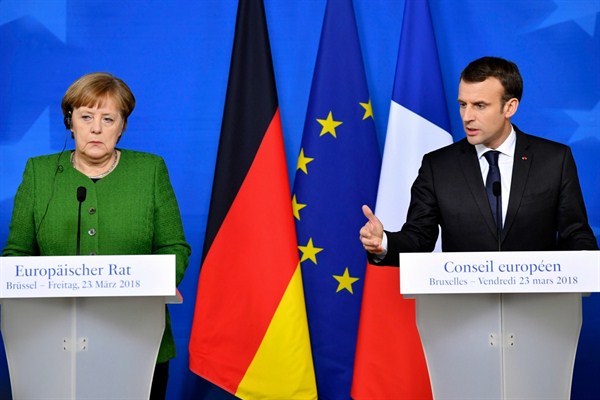As French President Emmanuel Macron nears the end of his first year in office, three key policy gambles that are central to his agenda are coming to a head this week. These gambles begin with domestic structural reforms, move out toward proposed reforms for the European Union, and culminate with France’s role in shaping trans-Atlantic ties. Macron’s ability to deliver on them will determine whether he fulfills what he sees as his historical destiny as a providential national figure, or becomes the latest in a long line of aspiring but failed reformist French presidents.
Macron has his work cut out for him on all three fronts. Domestically, his current challenge is a reform of the state-owned rail company, SNCF, which the lower house of parliament approved yesterday despite stiff resistance from the labor unions. Macron argues that the changes are necessary to prepare the unprofitable and indebted SNCF for the EU-mandated entrance of foreign competition to the national rail market by 2020. But the rail unions have responded with rolling strikes that have stranded commuters repeatedly over the past several weeks, with plans to maintain the pressure for the foreseeable future.
Macron already passed labor reforms last year thanks not just to an overwhelming parliamentary majority, but also to his own willingness to make concessions in negotiations with labor unions. His modest reforms so far, however, have come at the cost of abandoning his Socialist roots when it comes to economic and budgetary policy, where he has offset tax cuts for the wealthy by slashing public sector spending. That has helped Macron co-opt some of the moderate center-right, but also confirmed Francois Mitterand’s oft-cited observation that the French center is “neither left nor left.”

